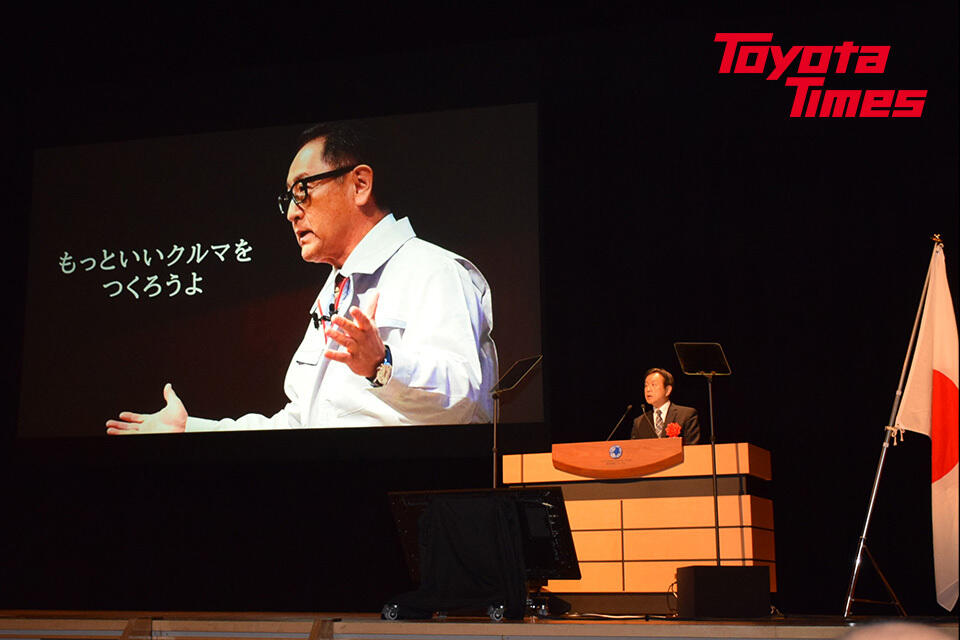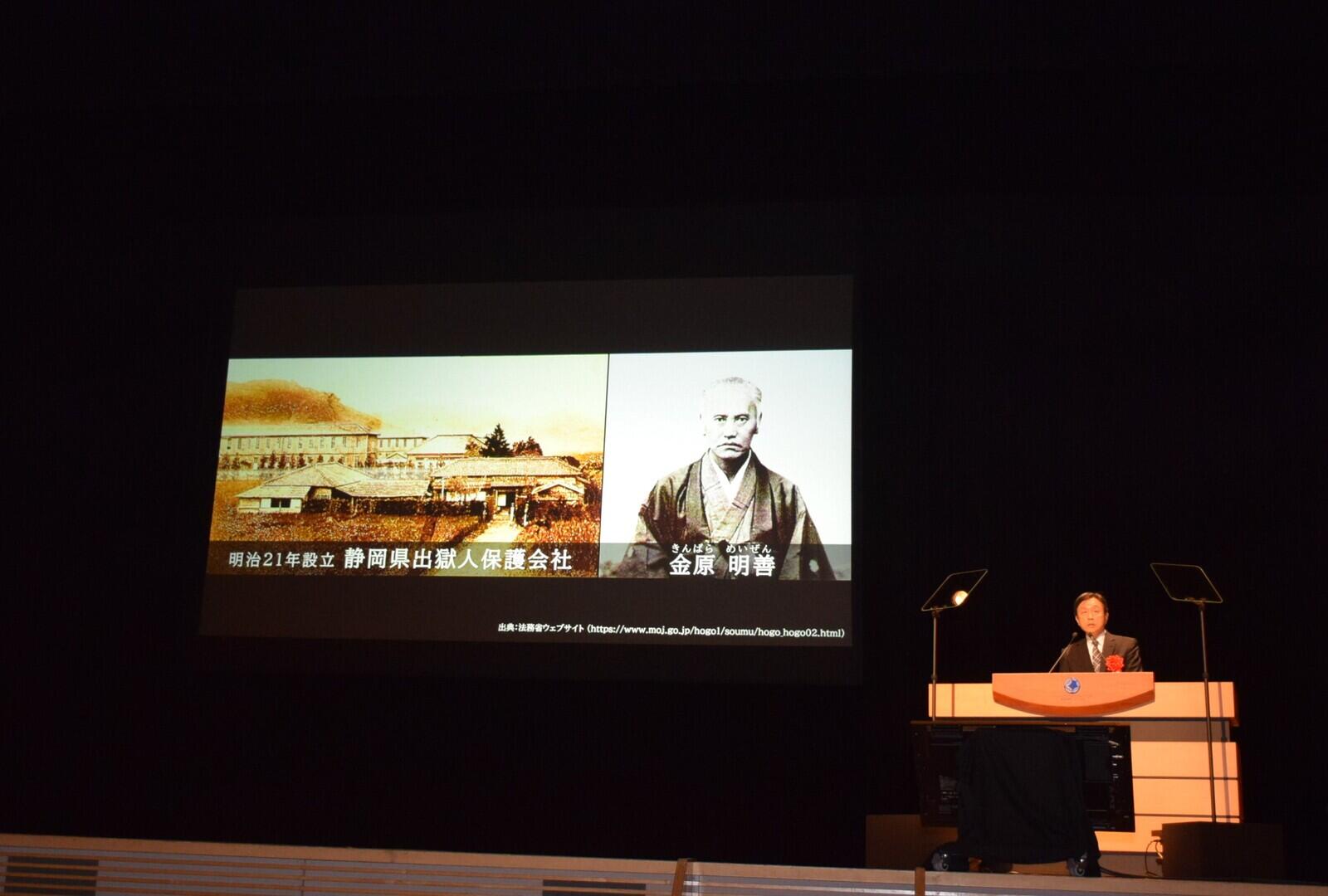
Offender rehabilitation in Japan has flourished through the altruistic spirit and humanity of volunteers. In a speech commemorating the system's 75th anniversary, Toyota Vice Chairman Shigeru Hayakawa recounted how Akio Toyoda transformed the company by "getting people to engage with each other."
Kind hearts, capable minds
Akio Toyoda’s transformation of Toyota was based upon two pillars: changing the products and changing the mindset of workers.
A time came for these efforts to bear fruit: the COVID-19 pandemic of 2020.
Although the impact on the global economy and car sales far exceeded the global financial crisis, this time, Toyota managed to remain profitable.
Then came the financial results announcement in May. Despite the future remaining impossible to foresee, we set a standard with global sales of 8 million vehicles and an operating income of 500 billion yen.
This demonstrated Akio Toyoda’s firm resolve.
The auto industry is a collective effort. When the path ahead is unclear and the future uncertain, everyone needs a standard to work towards. It is our mission to provide one.
Inspired by Akio Toyoda’s mindset, Toyota’s genba began to take the initiative.
They set out to create things that would help local people and the healthcare facilities working around the clock.
With single-minded purpose, Toyota staff produced masks and face shields and headed out to provide help on the ground.
At that year’s general shareholders’ meeting, Akio Toyoda shared his impressions from that period, as seen in the following video.
What Akio Toyoda tried to restore was the Toyota Motor Corporation’s founding spirit.
In other words, he trusted in people’s strong, kind hearts that fight for the benefit of others, underpinned by their ability to think and come up with ideas.
Perhaps such trust has parallels in the roles of hogoshi.
A person from the Ministry of Justice told me that many hogoshi meet with those being rehabilitated in their own homes or other settings in the community. The idea is to engage with them on a personal level and help to rehabilitate them through neighborly ties.
I believe the offender rehabilitation system is underpinned by compassion—a kind heart that shows concern for others.
The kind-hearted actions of each individual here today are what help to sustain Japanese society.
As I am sure you are aware, the Toyota Group is currently dealing with the issue of certification irregularities.
As Chairman Akio says, “The history of Toyota is a history of failures. Failure is part of human endeavor. The important thing is what you do after you fail.
“When something goes wrong, everyone immediately stops and works on the ground, through genchi-genbutsu, to identify the true causes and carry out improvements. That’s the Toyota way. Restoring that essence is a never-ending challenge.”
Making changes is far from simple. But unless we keep trying, nothing will change.
As Chairman Akio always says, the reason we are here today is because Kiichiro and the other founders took on the challenge of establishing an auto industry in Japan, not for themselves, but for their country and its future.
“Our forefathers knew nothing but struggle and didn’t get to reap the fruits of their efforts. If we who have seen nothing but good times are too afraid to take risks and act, we will be failing those who came before us.
“All of us have inherited the work of others; as their successors, we must take on the challenge of paving the path forward. Individuals, acting with passion and purpose, can change the future.”
Those of you gathered here today have also inherited the 75 years of effort behind the rehabilitation system. Let us all come together to change the future of this country.

For the children of today and the generations to come.
Thank you for your kind attention.

